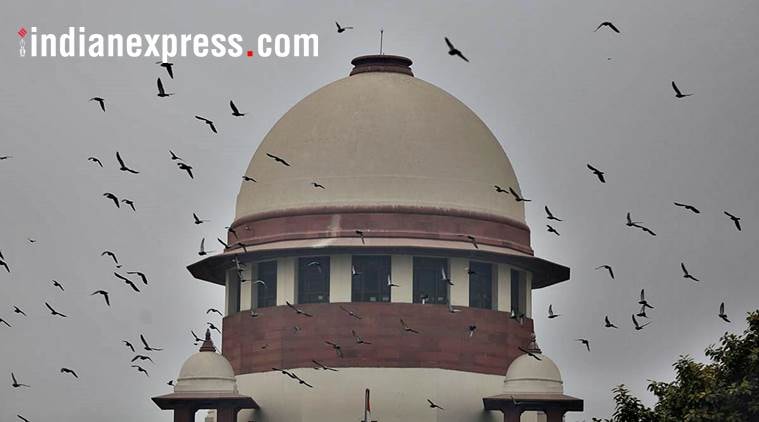Stay updated with the latest - Click here to follow us on Instagram
Parsi trust to Supreme Court: Will allow women marrying outside religion enter temples
The apex court was hearing a petition filed by Goolrokh Gupta, a Parsi woman who was barred from entering fire temples and Towers of Silence after she married outside the community.
 The Supreme Court. (Express Photo/Tashi Tobgyal)
The Supreme Court. (Express Photo/Tashi Tobgyal)
The Supreme Court on Thursday passed an order allowing Parsi women who have married outside the community to enter the temples managed by a trust in Gujarat. The directive came after the Bulsar Parsi trust told the Supreme Court that on compassionate grounds, it will allow a Parsi woman married to a Hindu man to attend funeral prayers and related ceremonies of her parents when the need arises.
The apex court was hearing a petition filed by Goolrokh Gupta, a Parsi woman who was barred from entering fire temples and Towers of Silence after she married outside the community. Gupta, who had married a Hindu but retained her faith, approached the apex court challenging the 2010 Ahmedabad High Court order that upheld the Parsi customary law that a woman marrying outside the community loses her religious rights as a Parsi.
She had approached the High Court against the directions of community elders that Parsis marrying outside the community will not be allowed to enter the Tower of Silence as they are deemed to have taken their spouse’s religion upon marriage. She apprehended that the same fate may fall upon her when her parents pass away, and sought relief from the court.
Earlier this month, a five-judge Constitution Bench headed by Chief Justice of India Dipak Misra asked the trust counsel Gopal Subramanium to apprise it on December 14 if she could be allowed to enter the Tower of Silence, where the dead of the community are laid to rest. “You must tell the trustees… rigidity is not always a correct principle of understanding a concept of religion. Less rigidity attracts more…,” the CJI told Subramanium. The Constitution Bench, also comprising Justices A K Sikri, A M Khanwilkar, D Y Chandrachud and Ashok Bhushan, also said “there is no law which says that a woman loses religious identity after marrying a man from another faith.”







